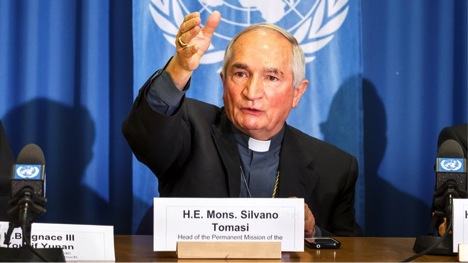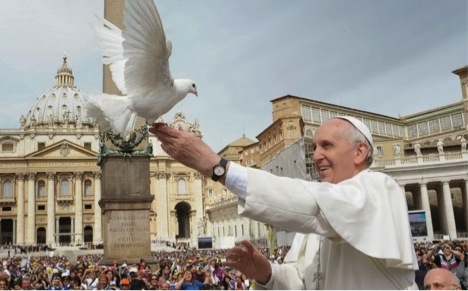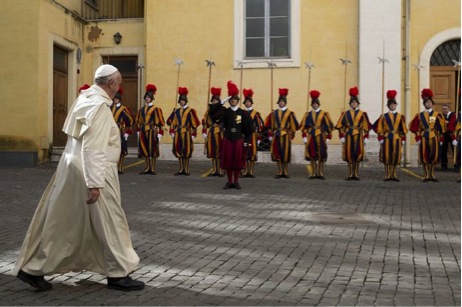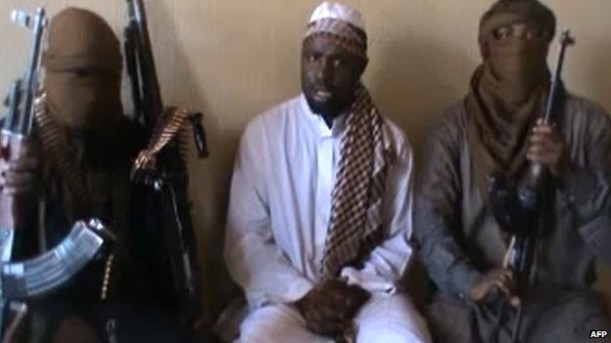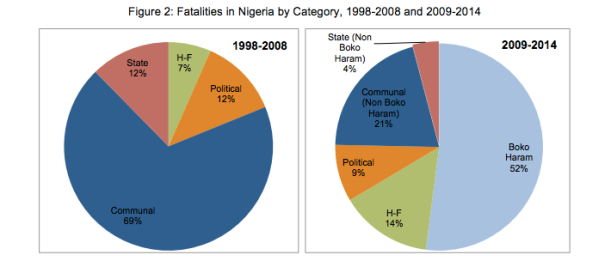Carolyn Mills
The economy of Nigeria is the largest economy in West Africa, experiencing massive growth in the last 24 years. While the African continent, as a whole, has experienced rapid growth and development, there is concern amongst the international community regarding the threat of terror organizations, such as Boko Haram and the internal rampant corruption. The economy of Nigeria has recently faced difficulty and has made several appeals to the international community for support. Without this crucial intervention international organizations the threat of collapse could be imminent.

Currently Boko Haram has taken a large foothold in the northern Nigeria, and is notably known for the kidnapping of 300 school girls in 2014, which sparked the #BringBackOurGirls movement. Boko Haram’s terror is indiscriminate as the organization is known for attacking both Christians and Muslims. Boko Haram began as a peaceful organization until 2009 when the government of Nigeria launched investigations into their activities. [1] The terror group has been credited with the death of nearly 17,000 Nigerians since its reign of terror began in 2010. [2] Corruption has been a further impediment to the growth of Nigeria’s economy. A recently published article, one of the most notable and egregious cases of corruption occurred when $195 billion naira (nearly 10 billion dollars) was pilfered from a pension fund that was intended for retired workers.[3]
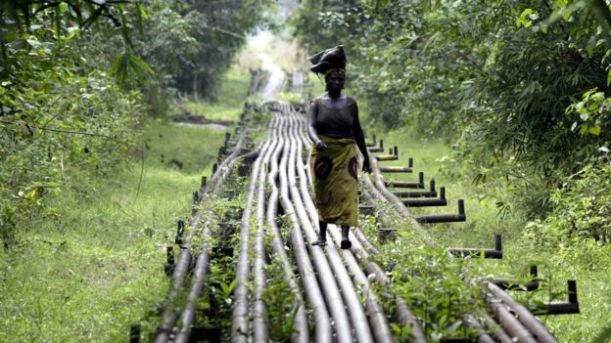
2014 was a year of great exploits for Nigeria, as it was named the largest economy in Africa (as well as most populous)[4]. Its largest industries are its growing entertainment sector known as ‘Nollywood’, followed by its large agricultural sector.[5] In the past 2 years, however, Nigeria has experienced a fall in the valuation of their currency (the naira) as oil prices have fallen below $30 per barrel. Initially following the election of President Muhammadu Buhari the stock market peaked at the hope of a new president with a new economic policy, however hopes were quickly dashed. [6] The falling price of crude oil in the country coupled with their need to import refined fuel has put much pressure on the economy and President Buhari. [7]

In an effort to assist the country in its efforts to fight Boko Haram, the European Union has pledged more than $50 million dollars to aide in the fighting against Boko Haram[8]. The European Union has also recently pledged to assist in diversifying its nearly exclusive oil dependent economy[9]. The attractive package comes with many caveats (read strings). The EU Ambassador to Nigeria, based in Lagos, stressed the importance of business owners and investors having protection under Nigerian laws stating.[10] Although how Nigeria will ensure the protection of potential investors is still in flux, Foreign Minister Geoffrey Onyeama remains hopeful that any future agreements with other countries will provide Nigeria with technical assistance to make the transition from a primarily agrarian economy to a fully industrialized economy.[11] The more pronounced role of other states and organizations is necessary to help usher in Africa’s largest economy and assist in sustained growth—rather than a mere suggestion from the EU.

Despite the recent call for help from President Buhari, Germany has been the only state to show interest in contributing to the development and investment in Nigeria’s now lackluster economy. Among other things, German President Joachim Guack has pledged support in the move to eliminate corruption, which is seen as the country’s number one enemy to progress. [12]
The threat of global terrorism should not deter international development. With increased investment comes increased infrastructure—infrastructure that is undoubtedly linked to the safety of the country’s border. Without such investment, the economy will stagnate and most of its resources will be sunk into their safety and defense forces, rather than development. It is a harrowing catch-22 for government of Nigeria, as they attempt to advance their economic and social strength, while combating terrorism and corruption that seeks to slow progress. Germany’s advanced (and seemingly sole) role in the elimination of terror and the diversification of the economy will hopefully prove to be altruistic and non-imperialistic in nature as Nigeria fights to remain a forerunner on the African Continent.
Carolyn Mills is a graduate from of Bowie State University and holds a Bachelor of Arts in Political Science. Carolyn is a 2L at the University of Baltimore School of Law. She serves as 2L Representative for the International Law Society. Her interests and focus areas are on Central America and West Africa; she has traveled to both Guatemala and Honduras and hopes to visit Ghana this summer. She is currently a law clerk for the Department of Homeland Security’s Human Rights Law Section.
[1] http://m.nzherald.co.nz/world/news/article.cfm?c_id=2&objectid=11250530
[2] http://www.globalresearch.ca/boko-haram-in-nigeria-the-destabilization-of-the-world-through-the-war-on-terror/5504014
[3] https://www.naij.com/402850-top-12-corruption-cases.html
[4] http://leadership.ng/features/502916/nigerian-economy-global-appeal-nwanze
[5] http://www.theatlantic.com/international/archive/2014/04/how-nigeria-became-africas-largest-economy-overnight/360288/
[6] http://qz.com/595453/the-precarious-state-of-nigerias-economy-right-now-captured-in-two-charts/).
[7] Id.
[8] Id.
[9] ( http://www.thisdaylive.com/articles/eu-pledges-to-assist-nigeria-diversify-economy/232283/)
[10] http://www.thisdaylive.com/articles/eu-pledges-to-assist-nigeria-diversify-economy/232283/.
[11] (http://allafrica.com/stories/201602100215.html).
[12] http://www.vanguardngr.com/2016/02/we-have-lost-lives-economy-because-of-corruption/



